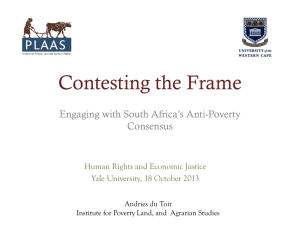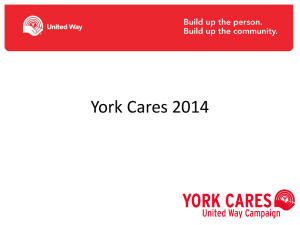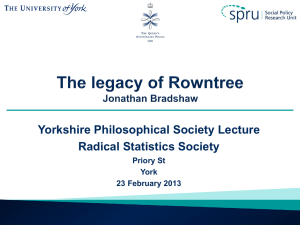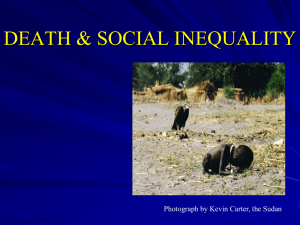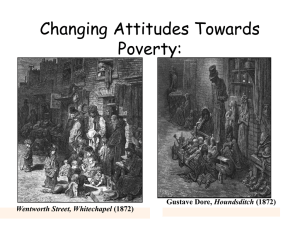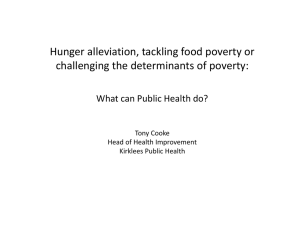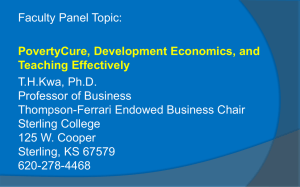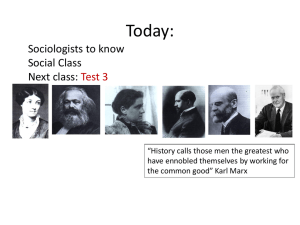Anti-poverty - Caritas Australia
advertisement
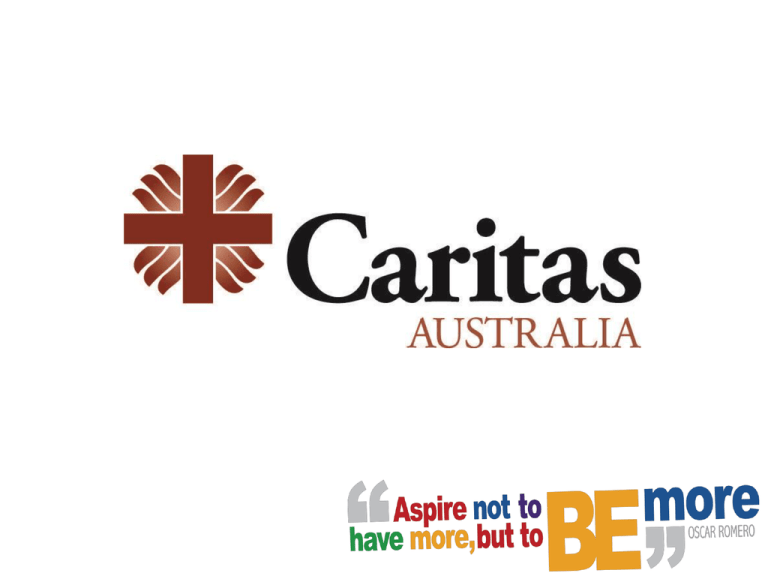
“What you did for the least of these, you did for me…..” Jesus identified himself with the hungry, the thirsty, the naked, the imprisoned, and the stranger, insisting that when we serve them we serve him (Mt 25:40). A Place at the Table, pg. 3 What is poverty? The dictionary defines poverty as: “Not having the minimum income level to get the necessities of life.” ‘Necessities of life’ means basic things like food, shelter and clean water – anything that is vital to life. But… …Poverty also means not having the opportunities and choices which open up a future – education, healthcare and human rights. Poverty is hunger. Poverty is lack of shelter. Poverty is being sick and not being able to see a doctor. Poverty is not being able to go to a school, not knowing how to read, not being able to speak properly. Poverty is not having a job, is fear for the future, living one day at a time. Poverty is losing a child to illness brought about by lack of clean water. Poverty is powerlessness, lack of representation and freedom. (Understanding and responding to poverty. PovertyNet. The World Bank, www.worldbank.org/poverty/) What does poverty look like? 850 million people living in hunger What does poverty look like? 7.6 million children under-five dying each year What does poverty look like? 390,000 children infected with HIV in one year What does poverty look like? 61 million children not having the chance to go to school What does poverty look like? 32 women dying every hour from childbirth or pregnancy related causes What does poverty look like? 783 million people without access to clean drinking water At least one million Australians are living in poverty or hardship today. “The goods of creation are destined for all, and in the world community economies must be directed toward the sharing of these goods, their lasting use and the fair division of the benefits that derive from them.” Pope Benedict XVI (World Food Day 2008) Let’s dig deeper to see what some of the root causes of poverty are… Lack of food DEBT Conflict Lack of Education Gender inequality Debt Countries borrow money to fund projects like roads, irrigation programs and agriculture, or to help them through difficult times such as a natural disaster. Debt mounts up and repayments can eat into budgets for education, health and development. Lack of food Debt Conflict LACK OF EDUCATION Gender inequality Education Education is an essential route out of poverty. Children who can’t go to school will have fewer opportunities to escape poverty. Lack of food Debt CONFLICT Lack of Education Gender inequality Conflict During conflict, crops can be destroyed, water sources poisoned and livestock killed or stolen. This reduces food, water and income for communities. Injury and disability, resulting from conflict, can make it impossible for people to grow food, collect water or earn an income – even after a conflict subsides. LACK OF FOOD Debt Conflict Lack of Education Gender inequality Food Without secure supplies of the right food, people’s health can suffer, affecting their ability to earn money or attend school. Malnourished children suffer from incomplete physical development and learning difficulties, which can lead to a life of poverty. Lack of food Debt Conflict Lack of Education GENDER INEQUALITY Gender Women and girls are more vulnerable to poverty than men and boys. Their basic rights are denied just because of their gender. This means they often have less access to education, lower wages and, in some countries, can’t even own their own land. Our love is not to be just words or mere talk, but something real and active. 1 John 3:18 What can I do? Learn about and support your Catholic agencies who are working to fight against poverty at a global and local level. Picture credits: Sean Sprague Cindy Godden Peter Solness Caritas Australia Last updated September 2012

